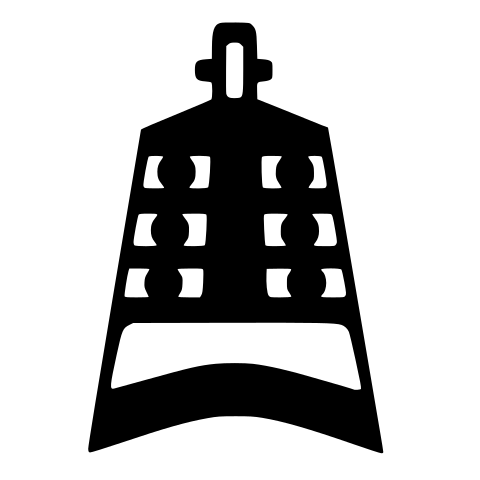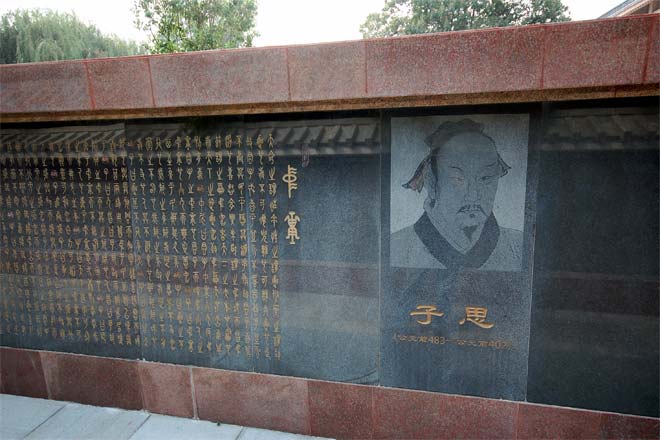Comparison chart
| | Christianity | Confucianism |
|---|---|---|
 |  | |
| Use of statues and pictures | In Catholic & Orthodox Churches. | Permitted. |
| Founder | The Lord Jesus Christ. | Kong Qiu (Confucius) |
| Place of origin | Roman province of Judea. | China |
| Belief of God | One God: Father, Son, and Holy Spirit. The Trinity. | Depending on the religion held, usually Buddhist. Confucianism is not strictly a religion but rather advises a schema of social order. |
| Literal Meaning | Follower Of Christ. | Disciple of Confucius. |
| Scriptures | The Holy Bible | Analects of Confucius and Mencius; I Ching; Doctrine of Mean, etc. |
| Clergy | Priests, bishops, ministers, monks, and nuns. | Bureaucrats. |
| Practices | Prayer, sacraments (some branches), worship in church, reading of the Bible, acts of charity, communion. | Visit to temples to pay homage to Ti'en (while it can refer to God or Heaven, it traditionally refers to social power), Confucius, and ancestors; To practice ('Jing zuo, ') or 'Quiet Sitting', a neo-Confucian seeking of self-cultivation. |
| Life after death | Eternity in Heaven or Hell, in some cases temporal Purgatory. | Ancestors and heritage is important, but not worshiped. |
| View of the Buddha | Christians believe that the Buddha was a false teacher, and do not adhere to anything he taught. | Buddha is followed by many Confucians. |
| Followers | Christian (followers of Christ) | Confucianists |
| Place of worship | Church, chapel, cathedral, basilica, home bible study, personal dwellings. | Temples. |
| Original Language(s) | Aramaic, Greek, and Latin. | Mandarin or Cantonese |
| Human Nature | Man has inherited "original sin" from Adam. Mankind then is inherently evil and is in need of forgiveness of sin. By knowing right and wrong Christians choose their actions. Humans are a fallen, broken race in need of salvation and repair by God. | Humans should respect those who are superior to them. |
| Geographical distribution and predominance | As the largest religion in the world, Christianity has adherents are all over the world. As a % of local population, Christians are in a majority in Europe, North and South America, and Australia and New Zealand. | Asia. |
| View of other Dharmic religions | N/A. | Confucianists usually follow Buddhism, which is a Dharmic religion. |
| Goal of religion | To love God and obey his commandments while creating a relationship with Jesus Christ and spreading the Gospel so that others may also be saved. | To have a structured society. |
| Holy Days | Christmas (celebration of the birth of Jesus), Good Friday (death of Jesus), Sunday (day of rest), Easter (resurrection of Jesus), Lent (Catholicism), saints' feast days. | Chinese New Year, Teacher Day, Ancestor Day. |
| Holy days/Official Holidays | The Lord's Day; Advent, Christmas; New Year, Lent, Easter, Pentecost, every day is dedicated to a Saint. | Chinese New Year, Teacher Day, Ancestor Day. |
| Belief | The Ante-Nicene Creed sums up Christian belief in the Holy Trinity. | Confucianism is sometimes mistakenly seen as a religion but it is really a philosophy of China, and of Asia as a whole. It stresses human conduct over belief in God. |
| Goal of Philosophy | Objective reality. Worship of God who created life, the universe, and is eternal. Christianity has its own philosophy, found in the Bible. That philosophy is Salvation from sin, through the Passion of Our Lord Jesus Christ. | Social Harmony. |
| Branches | Roman Catholics, independent Catholics, Protestants (Anglicans, Lutherans etc.), Orthodox (Greek orthodox, Russian orthodox). | Han Confucianism; Neo Confucianism; Contemporary Confucianism; Japanese Confucianism; Korean Confucianism; Vietnamese Confucianism; Boston Confucianism. |
| Views on other religions | Christianity is the only True Faith. | Confucianists see no contradiction in following more than one religion. |
| Promised Holy one. | Second Coming of Christ | Coming of the Superior Man or Perfect Gentleman. |
| Offshoot religions | Rastafarianism, Universalism, Deism, Masonry and Mormonism. | Cao Dai. |
| Names of God | God, Gud, Gott, Deo, Dios. Jehovah, YHWH, Eli Elohim, (depending on language Christians are of every language and culture around the world) | Ti'en, really referring to power; Shang Ti is the "Supreme Deity" that really refers to the position of the Emperor in a social order. |
| Concept of Deity | 1 God, in 3 Divine Persons: The Father, the Son, and the Holy Spirit. | Most believe in One God, but this is not necessary since Confucianism is not a religion but a belief system about social ordering. |
| Use of statues, images | some denominations regard It as forbidden and Idolatry. Anglicans and Lutherans allow pictures but forbid venerating them. Catholics encourage pictures and statues and venerate them. Orthodox encourage pictures and venerate them. | Permitted. |
| Concept of God | One God, Who Is the Father, the Son, and the Holy Spirit. | One God. |
| Original Languages | Aramaic, Common (Koine) Greek, Hebrew. | Mandarin or Cantonese |
| Virtue(s) in which religion is based upon | Love and justice. | Respect |
| Views on the afterlife | Eternity in Heaven or Hell; some believe in temporal suffering in Purgatory, before admittance into Heaven. | To be worshipped by one's descendants and their families. |
| View of other Oriental religions | N/A. | Usually follows other Oriental religions, especially Taoism. |
Further Reading
For further reading, there are several books available on Amazon.com on Confucianism and Christianity:


 Catholicism
Catholicism  Catholic
Catholic  Mormonism
Mormonism  Christianity
Christianity  Sunni
Sunni  Christianity
Christianity
Comments: Christianity vs Confucianism
Anonymous comments (2)